|
|
| News |
|
EMR forms ‘Low vision and rehabilitation taskforce’
|
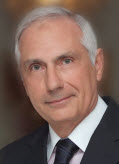 The IAPB-EMR had established a taskforce to upscale low vision and rehabilitation (LVR) services in
the region. The taskforce is to carry forward the recommendations of a regional workshop on
enhancing LVR services in EMR held in from 10 - 12 December in Doha, Qatar.
The IAPB-EMR had established a taskforce to upscale low vision and rehabilitation (LVR) services in
the region. The taskforce is to carry forward the recommendations of a regional workshop on
enhancing LVR services in EMR held in from 10 - 12 December in Doha, Qatar.
Members of the taskforce are Dr Ahmed Trabelsi - Chairman, Dr Boshra Elbayoumi, Dr Hassan Minto,
Noura Abdullah, Dr Abdulhanan Choudhury - WHO EMRO.
The terms of reference of the taskforce includes:
- to prioritize the most effective and doable recommendations (from the Doha workshop
recommendations) to be implemented,
- to Identify practical and effective ways to implement the prioritized recommendations
including monitoring, to Identify resources and partners that can be used to implement the
recommendations,
- to Implement the prioritized recommendations and
- to serve as reference group for all LVR services in the region.
|
|
EMR Regional Workshop on Low vision and rehabilitation Services in Doha, Qatar
|
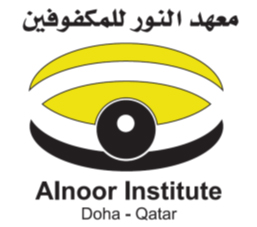


The Prevention of Blindness Union (PBU), in collaboration with the International Agency for the
Prevention of Blindness – Eastern Mediterranean Regional office (IAPB-EMR), successfully concluded the
EMR Workshop on Low Vision and Rehabilitation Services from 10 - 12 December 2012 in Doha, Qatar. The
purpose of the meeting was to create awareness about low vision and rehabilitation (LVR) services as
a part of comprehensive eye care in the region and develop a regional strategy to increase awareness,
coverage and access in member countries.
The meeting was attended by local and international experts on low vision, the National Coordinators
for the prevention of blindness from 19 EMR countries, WHO-EMRO, World Blind Union, professional
bodies and many non-governmental organizations. The 3-day workshop was very interactive, with
plenary sessions as well as group-work that culminated in comprehensive recommendations and
strategies towards enhancement of low vision and rehabilitation services in the region. For the
workshop recommendations, please click here.
Al Noor Institute for the Blind, Doha and Shafallah Foundation Qatar generously supported the workshop.

|
|
Tanzania Project: PBU sponsors ophthalmologists for fellowships in India
|
PBU, through a funding support of Prince Ahmad Abdulaziz Al Saud, is sponsoring 2 ophthalmologists
from the Muhimbili University of Health Sciences Dar es Salam to undertake fellowship training.
Dr Neema Daniel had commenced an 18 month long term fellowship training in Glaucoma at the
prestigious LV Prasad Eye Institute Hyderabad, India. While Dr Paul Nyaluke will commence a one year
fellowship program in Pediatric ophthalmology at the esteem Aravind Eye Hospital Madurai India.
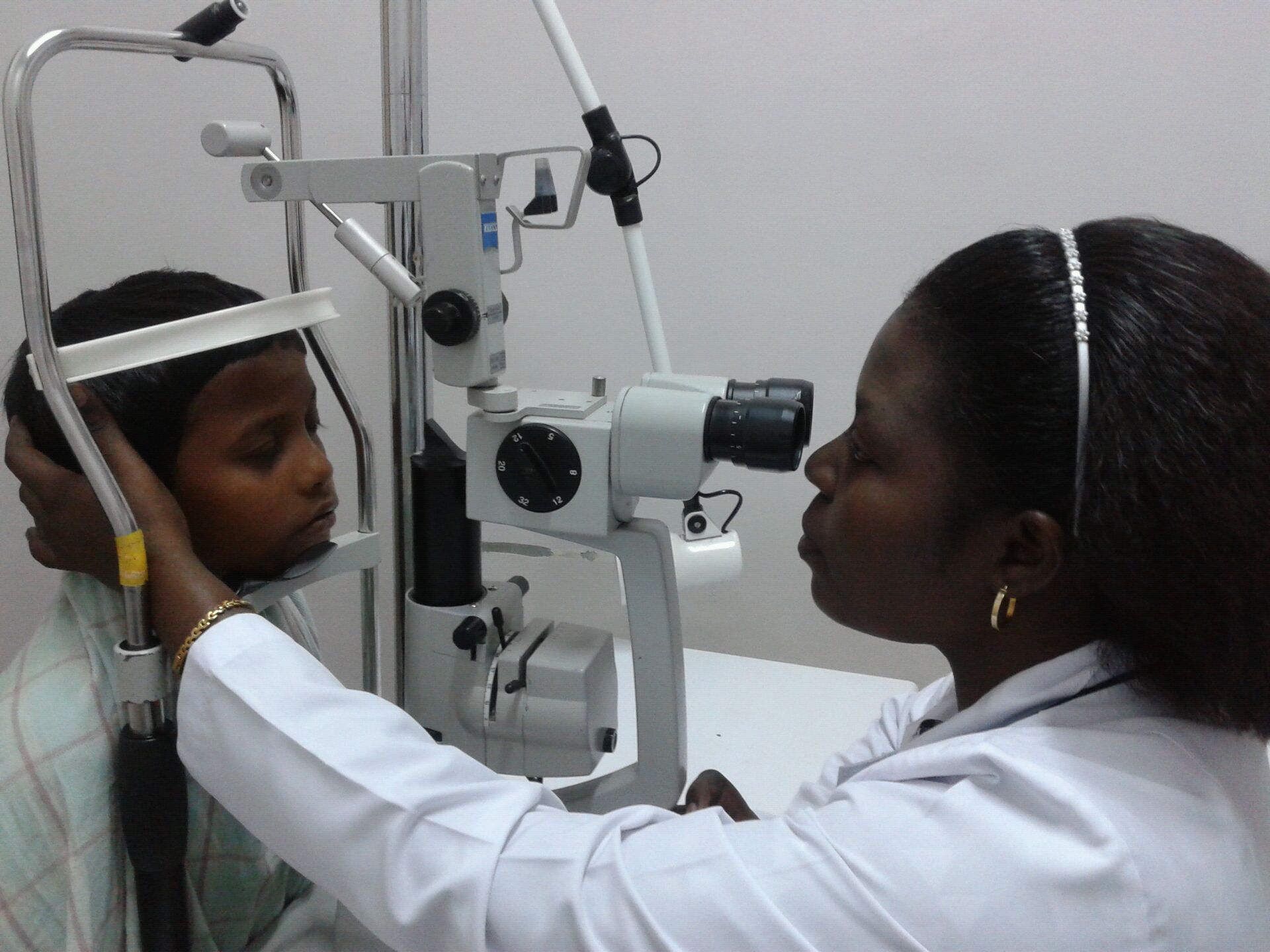
|
|
Saudi Arabia develops strategic plan for the control of diabetic retinopathy
|
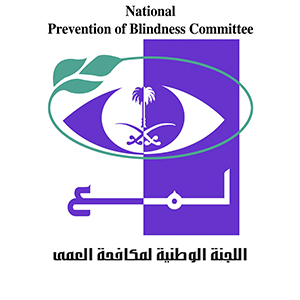 The Saudi Arabian National Prevention of Blindness Committee (NPBC), in collaboration with the
Ophthalmology Department of King Saud University (KSU) and Saudi Arabian Ministry of Health (MOH),
organized a strategic planning workshop for the control of diabetic retinopathy in the Kingdom.
The Saudi Arabian National Prevention of Blindness Committee (NPBC), in collaboration with the
Ophthalmology Department of King Saud University (KSU) and Saudi Arabian Ministry of Health (MOH),
organized a strategic planning workshop for the control of diabetic retinopathy in the Kingdom.
The workshop was held from 25 - 26 November 2012 in Riyadh, Kingdom of Saudi Arabia. It was attended
by regional and international experts in diabetic retinopathy control, Endocrinologists, general
physicians, Ophthalmologists and vitreo-retinal surgeons within Saudi Arabia, and MOH officials
in charge of public health, non-communicable diseases and diabetes control.

The main goal of the workshop was to develop a national comprehensive action plan for the control of
the Diabetic Retinopathy in Saudi Arabia, which will include the screening of patients as well as
recommendation of treatment of Diabetic Retinopathy.
|
|
Al Basar International Foundation holds Community Eye Health Course in Sudan
|
Al Basar International Foundation (BIF) held a 3-days ‘Short course on Community Eye Health’ from
21 - 23 November at Makkah Eye Complex (MEC), Khartoum Sudan , a hospital owned by BIF. It was held
in collaboration with CHEF International & PBU. A number of 23 participants (Ophthalmologists,
Optometrists & Eye-care Mangers) mostly from Sudan, two from Yemen and one from Afghanistan attended
the course. The faculty included Dr Mohammad Babar Qureshi, Dr Haroon Awan, Dr Para Ramchandra
Prof Dr Mohammad Saleh Memon, Dr Abdulaziz AlRajhi, Dr Adel A. Rushood, Dr Ahmed Trabelsi, Dr
Shariq Masood, Dr Kamal Hashem.
During the period also the 3rd batch of ‘Ophthalmic Assistants’ and 1st batch of ‘Ophthalmic
Technologists’ trained by Makkah Ophthalmic Technical College (an institution of BIF) graduated.
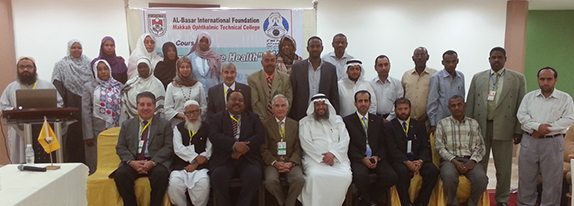
|
|
Nadi Al Bassar conducts cataract surgery eye camp and training in Cameroon
|
Nadi Al Bassar in collaboration with the Islamic Development Bank and Tunisian Agency for Technical
Cooperation performed the 7th mission in Douala Cameroun under the leadership of Dr Walid Zbiba.
460 adults with 4 children (2-4 years) had their vision restored after cataract surgery. A 3 year old child
said to his blind mother: “Maman, je vois que les couleurs ont change” (“I can see the colors has changed”);
while the sister of the church had her second eye operated successfully. During the camp, 6 young
Ophthalmologists were also trained on small incision cataract surgery and skills on how to better
manage the operated eyes. The Cameroonian Minister of Health and the Governor of Douala celebrated
the event by field visit.
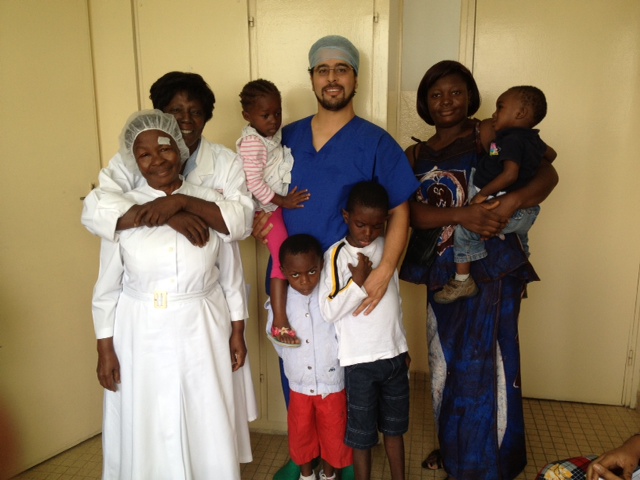
|
|
Tanzanian project: PBU donates ophthalmic equipment to Ophthalmology Department of MUHAS
|
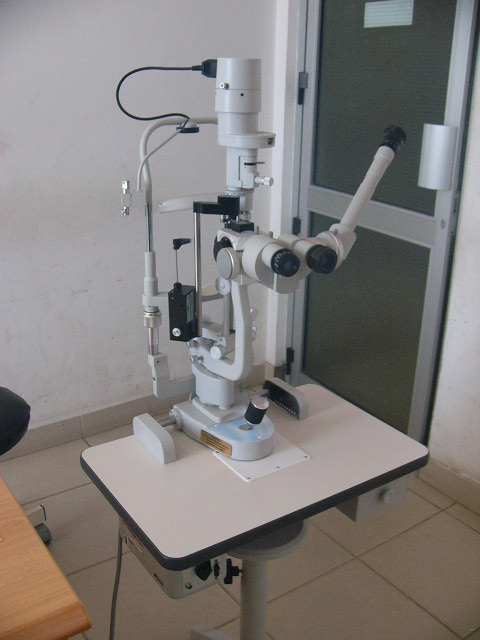 The PBU in support of the East Africa College of Ophthalmology in upgrading ophthalmology training
in Muhimbili University of Health Sciences (MUHAS) Dar El Salam Tanzania had donated a number of
diagnostic and curative ophthalmic equipment’s in the last one year to the Ophthalmology department
of the University. This includes slit lamp microscopes, operation microscopes, operating tables and
supporting facilities, surgical equipment’s etc.
The PBU in support of the East Africa College of Ophthalmology in upgrading ophthalmology training
in Muhimbili University of Health Sciences (MUHAS) Dar El Salam Tanzania had donated a number of
diagnostic and curative ophthalmic equipment’s in the last one year to the Ophthalmology department
of the University. This includes slit lamp microscopes, operation microscopes, operating tables and
supporting facilities, surgical equipment’s etc.
PBU support to the MUHAS is made possible by a generous donation from Prince Ahmad Abdulaziz Al Saud
from Saudi Arabia.
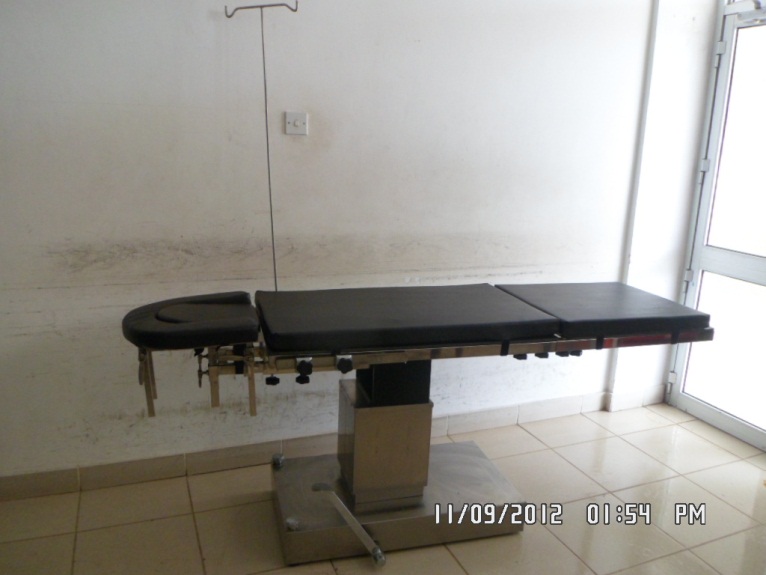
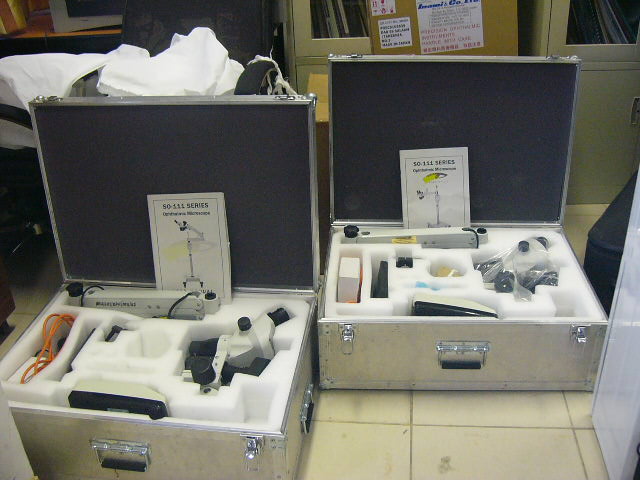
|
|
World Sight Day 2012
|
World Sight Day is an annual day of awareness to focus global attention on blindness, visual
impairment and rehabilitation of the visually impaired held on the second Thursday in October.
World Sight Day is observed around the world by all partners involved in preventing visual impairment
or restoring sight. It is also the main advocacy event for the prevention of blindness and for
Vision 2020.
Different countries and NGOs conducted various activities:
Saudi Arabia
The Saudi National Prevention of Blindness Committee (NPBC) chaired by Prince Abdulaziz Ahmad
Abdulaziz, in collaboration with many institutions, hospitals and eye medical centers in the Kingdom,
has concluded the celebration of the World Sight Day 2012 (WSD2012) held on Thursday, 11 October 2012
in three regions of Saudi Arabia. The activities conducted included:
- Awareness lectures about eye diseases and “Vision 2020: The right to sight”
- Free eye examination
- Exhibitions showcasing the different eye diseases
- Distribution of awareness brochures and booklets
- Radio and television interviews with senior ophthalmologists on eye diseases and concept of Vision2020: The Right to Sight
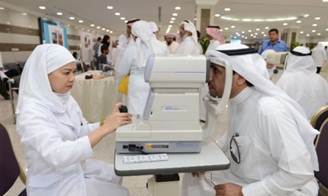
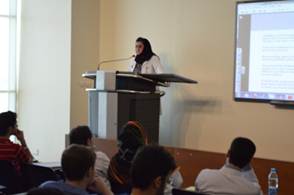
CHEF Pakistan
This year CHEF International in Pakistan celebrated this very significant event with key focus on
creation of public awareness regarding preventable causes of blindness. All the activities were
organized involving eye care teams with the active community participation. The teams placed at
Ten Community Vision Centers (CVCs) of CHEF-International in different parts of the country organized
multiple activities like public awareness walk, seminars and screening of school children for
refractive errors or low vision. The team of CVC Peshawar (KPK) organised a fund raising exhibition
in which handicraft made by the female employees at CHEF International, students of the school
for the blind, Peshawar and the Livelihood project (CHEF) collectively celebrated the World Sight
Day 2012. See detailed program.
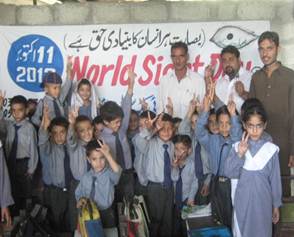
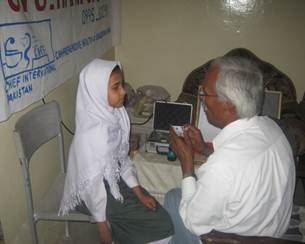
WHO-EMRO
On 11 October 2012, WHO-EMRO, WHO Representative’s Office, Egypt, other organizations and
institutions around the world observed the World Sight Day. There was no global theme for the Day
this year allowing participating organizations to use the occasion to highlight their own priority
areas.
In Egypt, organizations focused on the major causes of blindness – cataract, glaucoma, refractive
errors, trachoma and diabetic retinopathy. There are about 900 000 blind people in Egypt, and yet
80% of all visual impairment is preventable or can be cured. Avoidable blindness and visual
impairment are global health problems which have significant economic dimensions. Globally, 285
million people are visually impaired, of whom 39 million are blind. The global economy loses tens
of billions of dollars annually as a result of blindness and visual impairment, which affects the
whole of society. In the Eastern Mediterranean Region, over 23 million people live with visual
impairment, of whom 5 million are blind.
|
|
RAAB DR survey in Irbid, Jordan
|
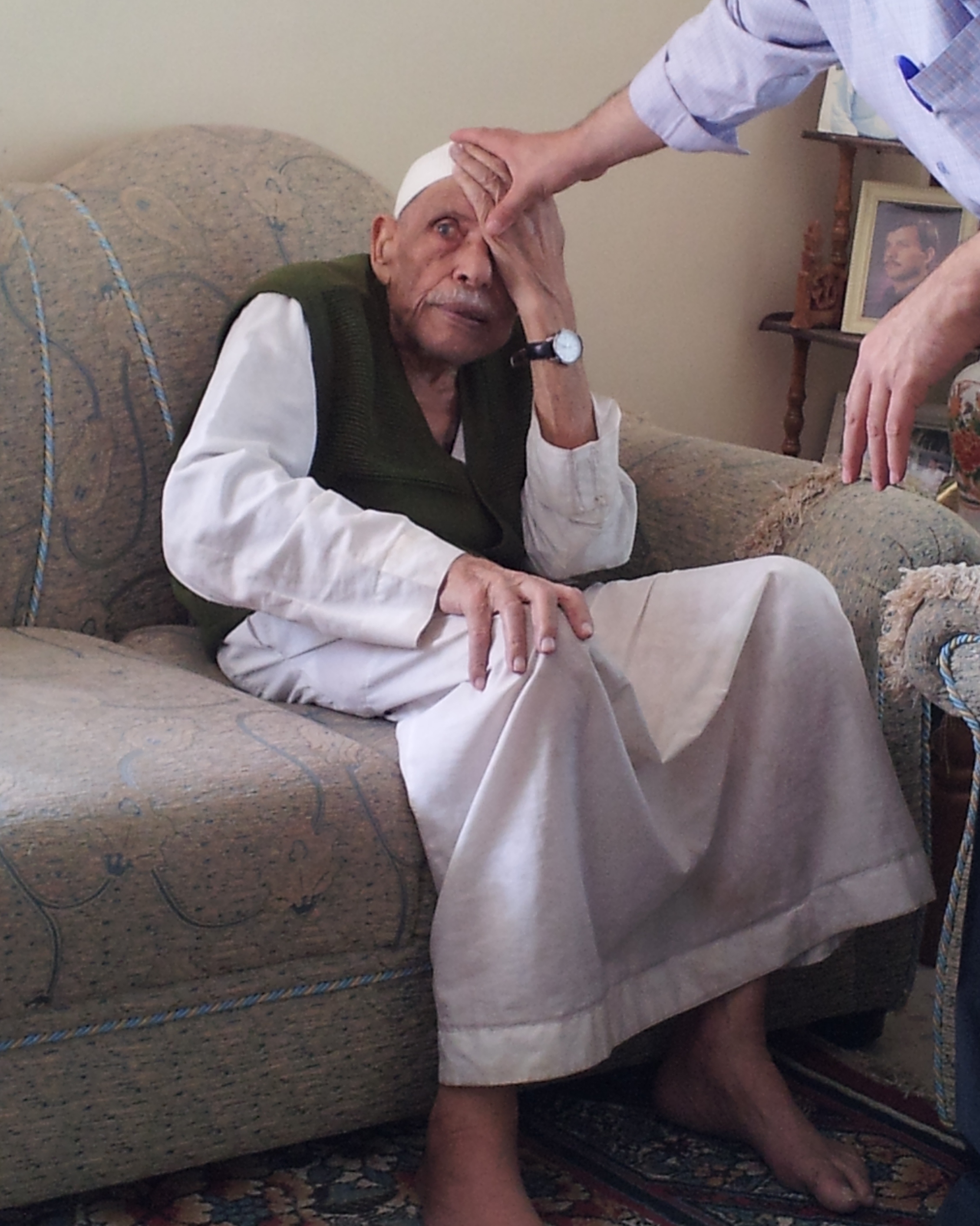
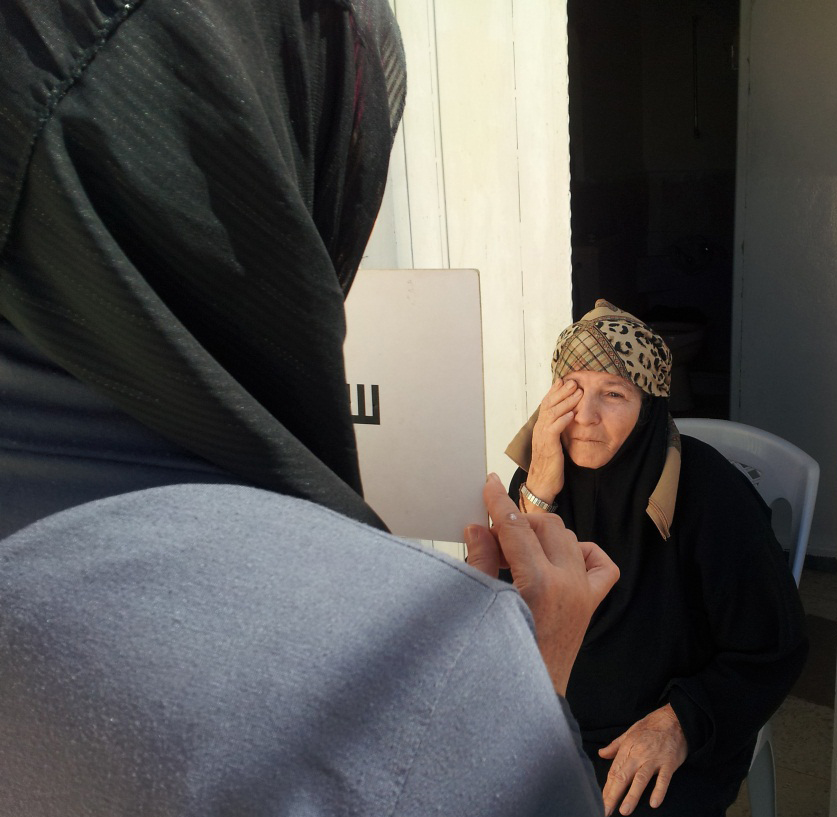
For evidenced based planning and monitoring the DR project n Irbid had commenced RAAB + DR survey.
A total of 3800 persons 50 years and older randomly selected will have blood sugar test, eye
examination and DR grading for the diabetics among them.
|
|
Health education materials for DR control distributed in Irbid Hospitals
|
No control of eye complications of diabetics can be achieved unless t the public and the diabetics
know about measures to prevent, control and take care of diabetes. In view of that the DR project
produced posters, pamphlets, rollers and ceiling hangers to educate not only diabetic patients but
also the general public on ways for diabetics to take care of their eyes to prevent visual loss.
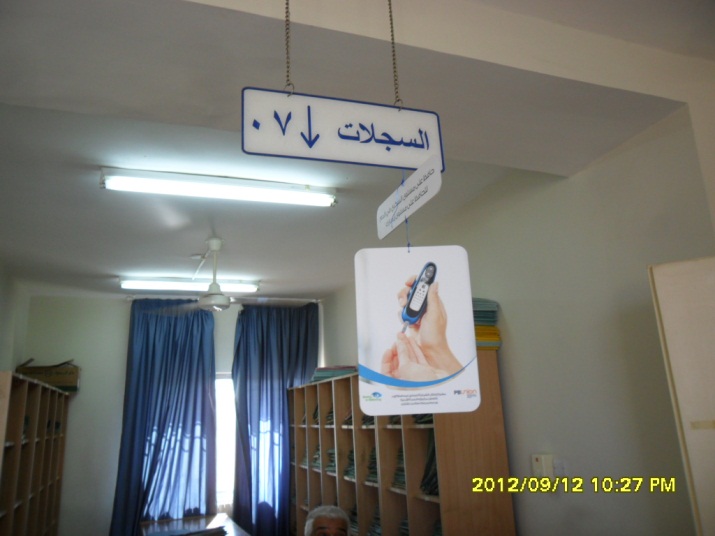
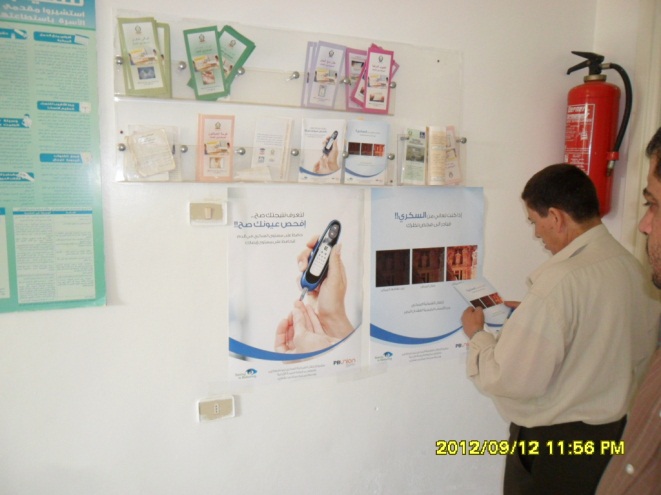
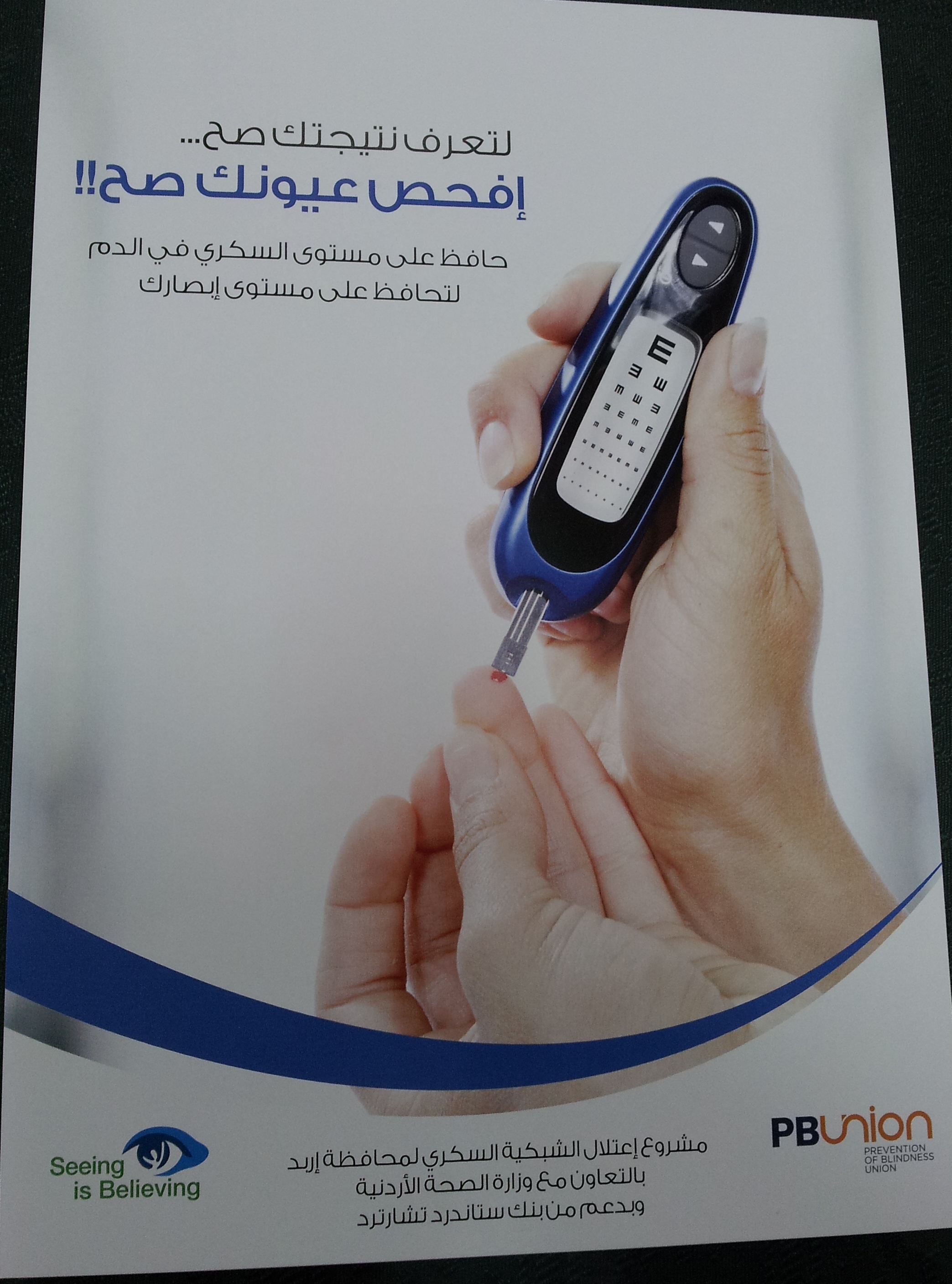
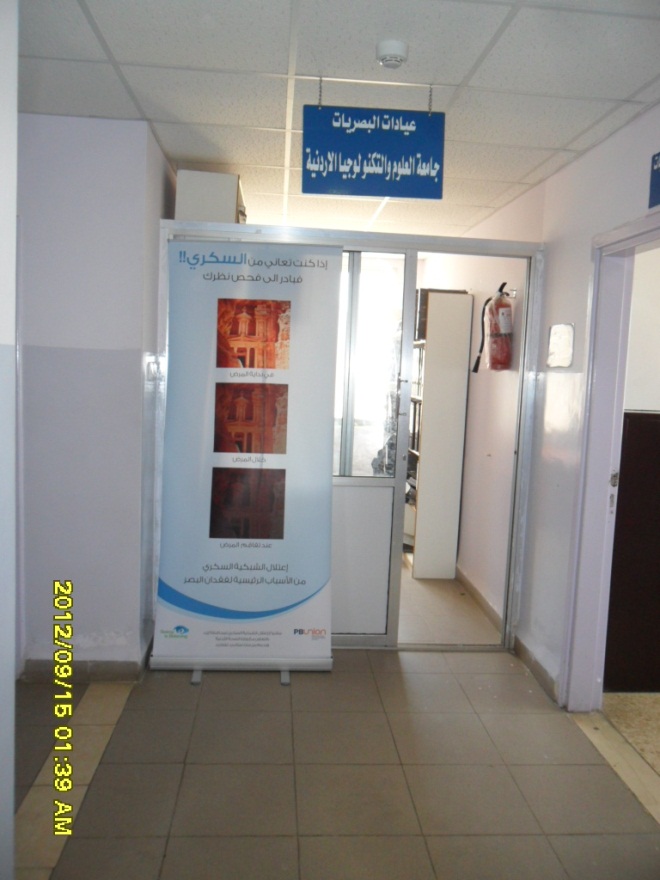
|
|
New WHO Action plan: your inputs needed
|
 A draft version of the new action plan for the prevention of avoidable blindness and visual
impairment for the period 2014-2019 titled “Universal Access to Eye Health: A Global Action Plan,
2014-2019” has now been released.
A draft version of the new action plan for the prevention of avoidable blindness and visual
impairment for the period 2014-2019 titled “Universal Access to Eye Health: A Global Action Plan,
2014-2019” has now been released.
It can be recalled that the WHO Executive Board in January 2012 requested the WHO Director General
to develop a new Action Plan for the prevention of avoidable blindness and visual impairment for the
period 2014-2019. The new action plan is being developed in consultation with member states and
international partners.
As such the WHO is seeking comments on this draft by 8 October 2012. The WHO will
also host a face to face consultation with member states and international partners on 8 October
2012 in Geneva. Based on these consultations the draft will be finalized for submission to the WHO
Executive Board which will meet in January 2013.
A copy of the draft and further information on the consultation process and how to submit a response
are available here.
|
|
59th WHO-EMRO Regional Committee Meeting to discuss the new Action plan
|
 The 59th regional committee meeting of the WHO-EMRO taking place 1 - 4 October 2012 in
Cairo will discuss the new action plan for the prevention of blindness on 3 October under Agenda 8a
with the title ‘Follow-up on regional action regarding Executive Board decision EB130(1) on the
implementation of the action plan for the prevention of avoidable blindness and visual impairment’.
The 59th regional committee meeting of the WHO-EMRO taking place 1 - 4 October 2012 in
Cairo will discuss the new action plan for the prevention of blindness on 3 October under Agenda 8a
with the title ‘Follow-up on regional action regarding Executive Board decision EB130(1) on the
implementation of the action plan for the prevention of avoidable blindness and visual impairment’.
|
|
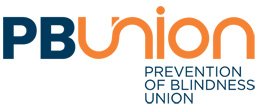
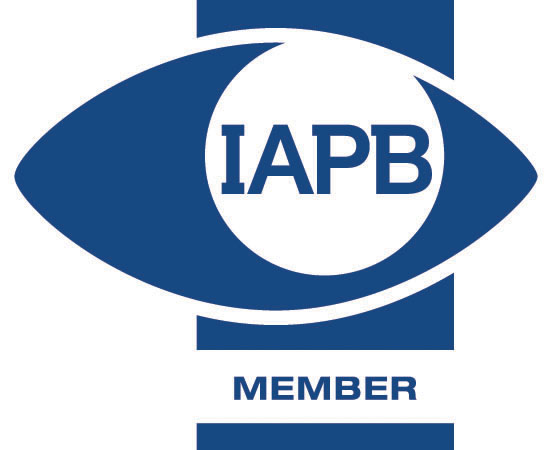



 The IAPB-EMR had established a taskforce to upscale low vision and rehabilitation (LVR) services in
the region. The taskforce is to carry forward the recommendations of a regional workshop on
enhancing LVR services in EMR held in from 10 - 12 December in Doha, Qatar.
The IAPB-EMR had established a taskforce to upscale low vision and rehabilitation (LVR) services in
the region. The taskforce is to carry forward the recommendations of a regional workshop on
enhancing LVR services in EMR held in from 10 - 12 December in Doha, Qatar. 




 The Saudi Arabian National Prevention of Blindness Committee (NPBC), in collaboration with the
Ophthalmology Department of King Saud University (KSU) and Saudi Arabian Ministry of Health (MOH),
organized a strategic planning workshop for the control of diabetic retinopathy in the Kingdom.
The Saudi Arabian National Prevention of Blindness Committee (NPBC), in collaboration with the
Ophthalmology Department of King Saud University (KSU) and Saudi Arabian Ministry of Health (MOH),
organized a strategic planning workshop for the control of diabetic retinopathy in the Kingdom.


 The PBU in support of the East Africa College of Ophthalmology in upgrading ophthalmology training
in Muhimbili University of Health Sciences (MUHAS) Dar El Salam Tanzania had donated a number of
diagnostic and curative ophthalmic equipment’s in the last one year to the Ophthalmology department
of the University. This includes slit lamp microscopes, operation microscopes, operating tables and
supporting facilities, surgical equipment’s etc.
The PBU in support of the East Africa College of Ophthalmology in upgrading ophthalmology training
in Muhimbili University of Health Sciences (MUHAS) Dar El Salam Tanzania had donated a number of
diagnostic and curative ophthalmic equipment’s in the last one year to the Ophthalmology department
of the University. This includes slit lamp microscopes, operation microscopes, operating tables and
supporting facilities, surgical equipment’s etc. 











 A draft version of the new action plan for the prevention of avoidable blindness and visual
impairment for the period 2014-2019 titled “Universal Access to Eye Health: A Global Action Plan,
2014-2019” has now been released.
A draft version of the new action plan for the prevention of avoidable blindness and visual
impairment for the period 2014-2019 titled “Universal Access to Eye Health: A Global Action Plan,
2014-2019” has now been released.  The 59th regional committee meeting of the WHO-EMRO taking place 1 - 4 October 2012 in
Cairo will discuss the new action plan for the prevention of blindness on 3 October under Agenda 8a
with the title ‘Follow-up on regional action regarding Executive Board decision EB130(1) on the
implementation of the action plan for the prevention of avoidable blindness and visual impairment’.
The 59th regional committee meeting of the WHO-EMRO taking place 1 - 4 October 2012 in
Cairo will discuss the new action plan for the prevention of blindness on 3 October under Agenda 8a
with the title ‘Follow-up on regional action regarding Executive Board decision EB130(1) on the
implementation of the action plan for the prevention of avoidable blindness and visual impairment’.